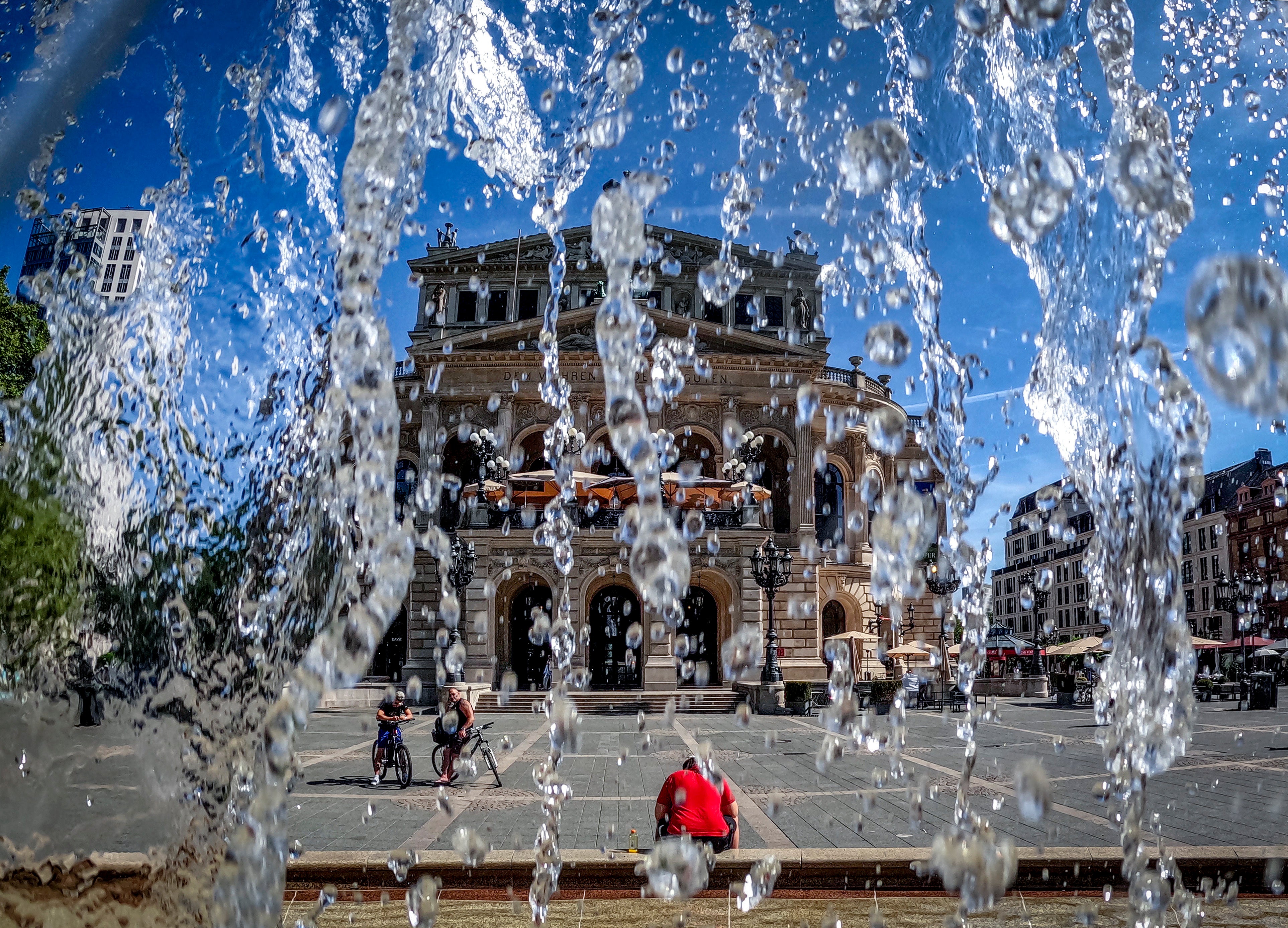We should ban hosepipes all year round – but they’re only part of the problem
Today, South East Water announced a hosepipe ban for Kent and Sussex, but this is only tackles a small part of a broader issue


Your support helps us to tell the story
From reproductive rights to climate change to Big Tech, The Independent is on the ground when the story is developing. Whether it's investigating the financials of Elon Musk's pro-Trump PAC or producing our latest documentary, 'The A Word', which shines a light on the American women fighting for reproductive rights, we know how important it is to parse out the facts from the messaging.
At such a critical moment in US history, we need reporters on the ground. Your donation allows us to keep sending journalists to speak to both sides of the story.
The Independent is trusted by Americans across the entire political spectrum. And unlike many other quality news outlets, we choose not to lock Americans out of our reporting and analysis with paywalls. We believe quality journalism should be available to everyone, paid for by those who can afford it.
Your support makes all the difference.Over the past few days, a number of water companies across Britain have asked people to be efficient with their water usage or warned that a hosepipe ban may be necessary. Today, South East Water announced a hosepipe ban for Kent and Sussex from 12 August after southern England recorded its driest July on record.
Personally, I would ban hosepipes all year around.
An average hosepipe churns out about 1,000 litres of water an hour. If it is left watering the grass for 12 hours, it would get through 12,000 litres. As the average Briton uses about 140 litres per day of mains water at home, this is nearly three months of water consumption.
That said, I have never understood why water companies only focus on demanding we cut back on domestic water consumption. This is because home water usage is only about 5 per cent of our individual daily water consumption. In the broader context of saving our precious water supplies, hosepipes represent peanuts.
When you include the water we use to produce our food, energy and the products we buy, this adds up to between 2,000 to 5,000 litres. The majority of this is used to grow and process our food. Nuclear and power stations also consume large amounts of water, whereas wind and solar use almost none, other than in their manufacture.
But it is meat production that is the key villain yet again.
It is estimated that the water needed for a vegan lifestyle is about 2,000 litres a day but for a meat eater it is as much as 5,000!
Thus, the most effective way to reduce your water consumption is to switch to plant-based foods.
It can take as much as 100,000 litres to produce 1 kilogram of grain-fed beef. Other estimated water footprints include: 1 litre of orange juice – 1,200 litres; 1 litre of milk – 628 litres.
More than 62 per cent of our water footprint is used in producing our imported food and goods. For example, our orange juice mainly comes from Spain, Morocco, Israel or California. All of these are highly water-stressed locations.
Here are other key ways to reduce your water consumption.
Reduce the number of new goods you buy. Never water your lawn; let it go brown. It will always recover once it gets drenched with rain. Never leave your taps running, whether it is for washing dishes, vegetables, your teeth or your car. Get an aerating shower head, which mixes a bubble of air within each bubble of water and so reduces consumption of expensively heated water by about 30 per cent.
I have gone further and installed a composting toilet, which gets rid of all water needed for the loo, and I also have a rain-water tap in the bathroom, filled from a rain-harvester on the roof, which I use for personal washing, household cleaning and washing vegetables etc.
To keep up to speed with all the latest opinions and comment, sign up to our free weekly Voices Dispatches newsletter by clicking here
Parts of the south of England get less rainfall per person than the desert country of Syria, due to our high population density and lowish rainfall.
I should add that 20 per cent of mains water is lost from pipes. Smart water meters would enable water companies to detect leaks at our homes themselves.
As the climate crisis increases the intensity of heatwaves and droughts, we need to be water-wiser and also store more water in winter.
But the most important message this week’s extreme weather brings in stark red letters is that we have run out of time: only deep, radical, urgent cuts in our profligate carbon emissions can protect our kids from a hellish future.
Join our commenting forum
Join thought-provoking conversations, follow other Independent readers and see their replies
38Comments